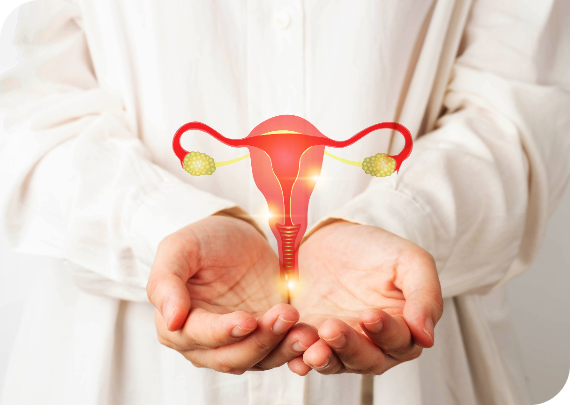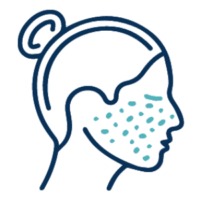Hoeger KM, Dokras A, Piltonen T. Update on PCOS: Consequences, Challenges, and Guiding Treatment. J Clin Endocrinol Metab. 2021;106(3):e1071-e1083. doi:10.1210/clinem/dgaa839
Janssen JAMJL. Hyperinsulinemia and its pivotal role in aging, obesity, type 2 diabetes, cardiovascular disease and cancer. Int J Mol Sci. 2021;22(15). doi:10.3390/ijms22157797
Macut D, Bjekić-Macut J, Rahelić D, Doknić M. Insulin and the polycystic ovary syndrome. Diabetes Res Clin Pract. 2017;130:163-170. doi:10.1016/J.DIABRES.2017.06.011
Marshall JC, Dunaif A. Should all women with PCOS be treated for insulin resistance? Fertil Steril. 2012;97(1):18-22. doi:10.1016/j.fertnstert.2011.11.036
Kravitz E, Dillawn P, Farr MA, Schutt AK. Utility of the insulin curve in addition to the OGTT in detecting hyperinsulinemia in women with PCOS. Fertil Steril. 2021;116(3). doi:10.1016/j.fertnstert.2021.07.346
Zhu S, Zhang B, Jiang X, et al. Metabolic disturbances in non-obese women with polycystic ovary syndrome: a systematic review and meta-analysis. Fertil Steril. 2019;111(1). doi:10.1016/j.fertnstert.2018.09.013
Bell GA, Sundaram R, Mumford SL, et al. Maternal polycystic ovarian syndrome and early offspring development. Human Reproduction. 2018;33(7):1307-1315. doi:10.1093/humrep/dey087
Pohlmeier A. Effect of a Low Insulinemic Diet on Clinical, Biochemical, and Metabolic Outcomes in Women with PCOS. Doctoral Dissertation. Texas Tech University; 2013
Zhang D, Yang X, Li J, Yu J, Wu X. Effect of hyperinsulinaemia and insulin resistance onendocrine, metabolic and fertility outcomes in women with polycystic ovary syndrome undergoing ovulation induction. Clin Endocrinol (Oxf). 2019;91(3). doi:10.1111/cen.14050
Schulte MMB, Tsai J he, Moley KH. Obesity and PCOS: The Effect of Metabolic Derangements on Endometrial Receptivity at the Time of Implantation. Reproductive Sciences. 2015;22(1):6-14. doi:10.1177/1933719114561552
Vega M, Mauro M, Williams Z. Direct toxicity of insulin on the human placenta and protection by metformin. Fertil Steril. 2019;111(3):489-496.e5. doi:10.1016/j.fertnstert.2018.11.032
Sun YF, Zhang J, Xu YM, et al. High BMI and Insulin Resistance Are Risk Factors for Spontaneous Abortion in Patients With Polycystic Ovary Syndrome Undergoing Assisted Reproductive Treatment: A Systematic Review and Meta-Analysis. Front Endocrinol. 2020;11. doi:10.3389/fendo.2020.592495
Zou XH, Sun LH, Yang W, Li BJ, Cui RJ. Potential role of insulin on the pathogenesis ofdepression. Cell Prolif. 2020;53(5). doi:10.1111/cpr.12806
Kleinridders A, Cai W, Cappellucci L, et al. Insulin resistance in brain alters dopamine turnover and causes behavioral disorders. Proceedings of the National Academy of Sciences. 2015;112(11):3463-3468. doi:10.1073/pnas.1500877112
Pohlmeier AM, Phy JL, Watkins P, et al. Effect of a low-starch/low-dairy diet on fat oxidation in overweight and obese women with polycystic ovary syndrome. Applied Physiology, Nutrition and Metabolism. 2014;39(11):1237-1244. doi:10.1139/apnm-2014-0073
Phy JL, Pohlmeier A, Cooper J, Harris K, Watkins P, Boylan M. Polycystic ovary syndrome patients achieve successful weight loss and decreased waist and hip circumference after 8-week low starch/low dairy diet. J Obes Weight Loss Therapies. 2015 Apr;5(2):259. doi: 10.4172/2165-7904.1000259
Jeffery AN, Metcalf BS, Hosking J, Streeter AJ, Voss LD, Wilkin TJ. Age Before Stage: Insulin Resistance Rises Before the Onset of Puberty. Diabetes Care. 2012;35(3):536-541. doi:10.2337/dc11-1281
Aris IM, Perng W, Dabelea D, et al. Analysis of Early-Life Growth and Age at Pubertal Onset in US Children. JAMA. 2022;5(2):e2146873. doi:10.1001/jamanetworkopen.2021.46873




















